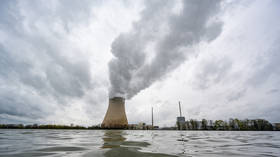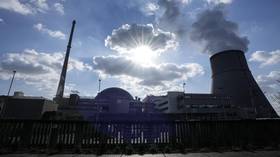Berlin rejects Bavarian demand to keep nuclear power

The German environment ministry on Sunday rejected a request from the country’s south-eastern state of Bavaria to allow it continue use of nuclear power, just hours after the EU nation closed the last three of its nuclear power stations on Saturday.
“Until the crisis is over, and the transition to renewables succeeds, we must use every form of energy by the end of the decade,” Bavarian Prime Minister Markus Soeder was quoted as saying on Saturday by the German newspaper Bild.
The nuclear stations were originally intended to be closed by the end of 2022 but the move was delayed amid concerns in the German energy sector following the collapse of energy trade with Russia.
The environment ministry, which oversees nuclear safety in Germany, told Bavarian officials that decisions regarding power stations rest entirely with the federal government and that no accommodation would be afforded to Bavaria as it closes its six-decade nuclear energy program.
Bavaria’s Isar II nuclear power plant was among those shut off by Germany on Saturday. The station has the capability of being one of the most powerful plants in the country and is equipped to power a very large city.
German Environment Minister Steffi Lemke told Reuters that “it is important to accept the state of the art in science and technology and to respect the decision of the German Bundestag.” Lemke also stated the license for Isar II had expired and resuming its operation would require obtaining a new one.
Germany made clear its intention to move away from nuclear energy in the wake of the Fukushima disaster in Japan in 2011. The government maintains that energy exportation figures will be maintained amid high gas-storage levels, as well as new liquid gas terminals and an expansion of renewable energies such as wind and solar.
However, critics say that Berlin will be forced to reinstate nuclear power if it wants to commit to its aim of becoming greenhouse-gas-neutral by 2045.













